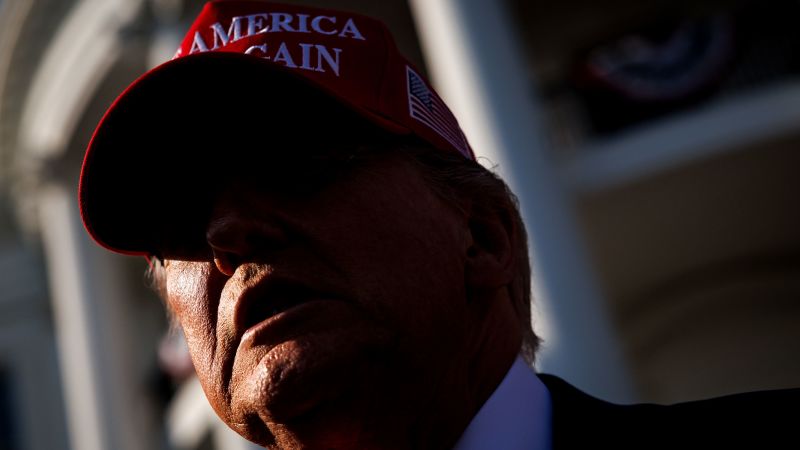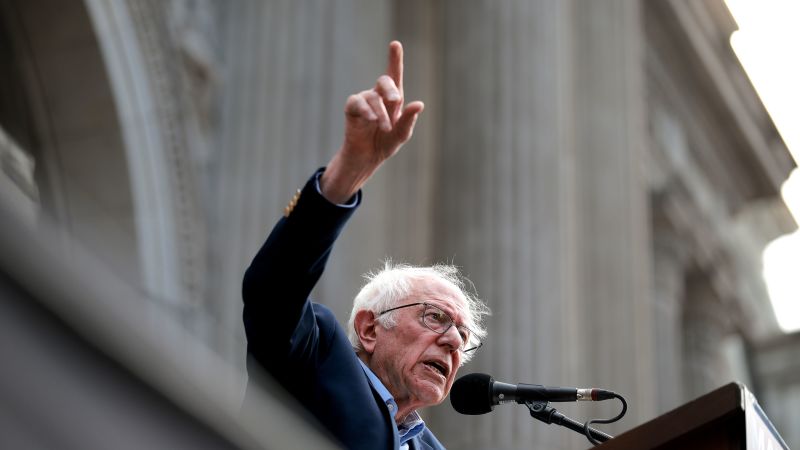The Erosion Of Judicial Power Under The Trump Presidency: An Analysis

Welcome to your ultimate source for breaking news, trending updates, and in-depth stories from around the world. Whether it's politics, technology, entertainment, sports, or lifestyle, we bring you real-time updates that keep you informed and ahead of the curve.
Our team works tirelessly to ensure you never miss a moment. From the latest developments in global events to the most talked-about topics on social media, our news platform is designed to deliver accurate and timely information, all in one place.
Stay in the know and join thousands of readers who trust us for reliable, up-to-date content. Explore our expertly curated articles and dive deeper into the stories that matter to you. Visit Best Website now and be part of the conversation. Don't miss out on the headlines that shape our world!
Table of Contents
The Erosion of Judicial Power Under the Trump Presidency: An Analysis
The Trump presidency (2017-2021) witnessed significant challenges to the established norms and traditions surrounding the US judicial system. While debates surrounding judicial appointments are common in American politics, the intensity and nature of the conflicts during this period sparked widespread concern about the erosion of judicial independence and the potential long-term consequences for the rule of law. This article analyzes key events and their impact on the perceived power and authority of the judiciary.
The Battle for Supreme Court Appointments:
Perhaps the most visible manifestation of this struggle was the unprecedented speed and intensity surrounding Supreme Court nominations. The appointments of Neil Gorsuch, Brett Kavanaugh, and Amy Coney Barrett fundamentally shifted the ideological balance of the court. The contentious confirmation processes, marked by accusations of partisan maneuvering and allegations of sexual misconduct in the case of Kavanaugh, highlighted the deep political divisions surrounding the judiciary. This intense politicization of the appointment process raised concerns about the court's ability to maintain its perceived impartiality. The rushed nature of Barrett's nomination, just weeks before the 2020 presidential election, further fueled criticism about the disregard for established norms.
Challenges to Judicial Authority and Oversight:
Beyond appointments, the Trump administration actively challenged judicial rulings and oversight. Public attacks on judges deemed unfavorable to the administration's policies became commonplace, creating an environment of intimidation and undermining public trust in the judiciary. This included direct criticisms of specific judges and rulings, often delivered via Twitter, directly challenging the established principle of judicial independence. Such actions were viewed by many legal scholars and commentators as an attempt to exert undue influence over the judicial branch.
Impact on Public Trust and Institutional Norms:
The cumulative effect of these actions has been a decline in public trust in the judiciary and a weakening of established institutional norms. Studies [cite relevant academic studies here – e.g., Pew Research Center data on public trust in institutions] have shown a decrease in public confidence in various governmental bodies, including the judiciary, potentially linked to the events of the Trump presidency. The erosion of trust in the courts has broader societal implications, potentially impacting the legitimacy of judicial decisions and the willingness of citizens to accept judicial rulings.
Long-Term Consequences:
The long-term consequences of the challenges faced by the judiciary during the Trump presidency remain to be seen. However, the precedent set by these actions could have lasting repercussions. The politicization of judicial appointments, coupled with the aggressive challenges to judicial authority, raise concerns about the future of judicial independence and the rule of law in the United States. The ongoing debate regarding judicial reform and the potential for further attempts to influence the composition and authority of the judiciary underscore the importance of continued vigilance in safeguarding the integrity of the judicial system.
Conclusion:
The Trump presidency presented a unique and significant challenge to the power and authority of the US judicial system. The politicization of judicial appointments, the attacks on judicial integrity, and the undermining of institutional norms have raised profound questions about the long-term health of American democracy and the rule of law. Understanding these events is crucial for informed discussions about the future of the judiciary and the preservation of its vital role in a functioning democracy. Further research into the long-term impact of these actions is essential for developing effective strategies to protect judicial independence and uphold the principles of American justice.
Keywords: Trump presidency, judicial independence, Supreme Court, judicial appointments, rule of law, American politics, Neil Gorsuch, Brett Kavanaugh, Amy Coney Barrett, political polarization, constitutional law, separation of powers.

Thank you for visiting our website, your trusted source for the latest updates and in-depth coverage on The Erosion Of Judicial Power Under The Trump Presidency: An Analysis. We're committed to keeping you informed with timely and accurate information to meet your curiosity and needs.
If you have any questions, suggestions, or feedback, we'd love to hear from you. Your insights are valuable to us and help us improve to serve you better. Feel free to reach out through our contact page.
Don't forget to bookmark our website and check back regularly for the latest headlines and trending topics. See you next time, and thank you for being part of our growing community!
Featured Posts
-
 Palestine Action Protests Arrest Total Exceeds 500
Aug 12, 2025
Palestine Action Protests Arrest Total Exceeds 500
Aug 12, 2025 -
 Carlos Correas Emotional Return To Houston A Look At The Matchup Against Bregman
Aug 12, 2025
Carlos Correas Emotional Return To Houston A Look At The Matchup Against Bregman
Aug 12, 2025 -
 West Bank Crisis Jeremy Bowen On The Growing Threat To Palestinian Homes
Aug 12, 2025
West Bank Crisis Jeremy Bowen On The Growing Threat To Palestinian Homes
Aug 12, 2025 -
 Former Astro Alex Bregman Returns To Houston
Aug 12, 2025
Former Astro Alex Bregman Returns To Houston
Aug 12, 2025 -
 Red Sox Manager Cora Addresses Bregmans Return To Houston
Aug 12, 2025
Red Sox Manager Cora Addresses Bregmans Return To Houston
Aug 12, 2025
Latest Posts
-
 Gaza Suffers Calamity While Uk Faces 30 Billion Chagos Compensation Claim
Aug 12, 2025
Gaza Suffers Calamity While Uk Faces 30 Billion Chagos Compensation Claim
Aug 12, 2025 -
 Edinburghs Arthurs Seat Wildfire Prompts Evacuation
Aug 12, 2025
Edinburghs Arthurs Seat Wildfire Prompts Evacuation
Aug 12, 2025 -
 Jennifer Aniston Breaks Silence Comments On Brad Pitt Angelina Jolie Relationship
Aug 12, 2025
Jennifer Aniston Breaks Silence Comments On Brad Pitt Angelina Jolie Relationship
Aug 12, 2025 -
 Democratic Party Rift Bernie Sanders And The Struggle To Regain Voter Trust
Aug 12, 2025
Democratic Party Rift Bernie Sanders And The Struggle To Regain Voter Trust
Aug 12, 2025 -
 Madison Keys On Cincinnati Win Blackout Moment Against Eva Lys
Aug 12, 2025
Madison Keys On Cincinnati Win Blackout Moment Against Eva Lys
Aug 12, 2025
